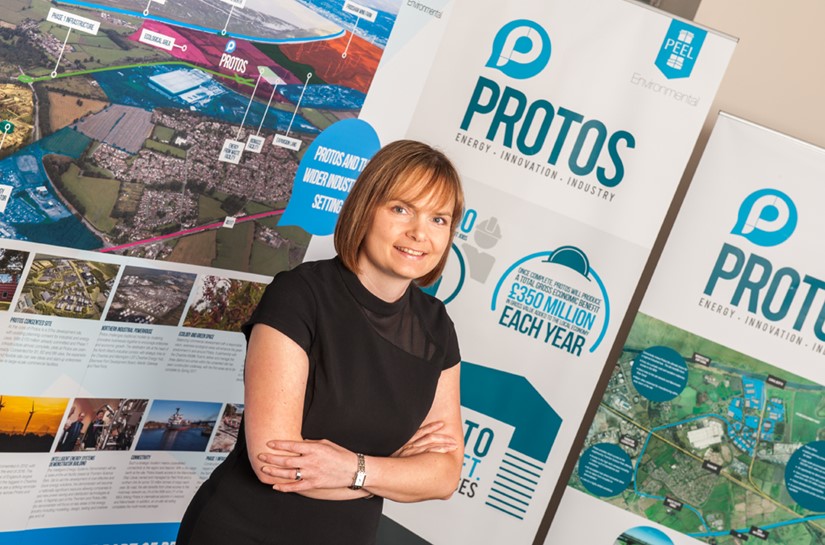The dust has settled on COP26 and the global leaders are now far from Glasgow. The focus on tackling climate change that reached fever pitch during the fortnight-long conference has also dissipated. Cue the national debate on whether it was a success or not, with the goal of keeping global warming to 1.5C still somewhat alive.
In the international rankings, the UK is doing well in the race to decarbonise, outpacing many European neighbours. But, with COP26 over, what needs to happen now? In particular for ambitious regions like the North West – with local net zero targets much earlier than the national 2050 date – how can a lasting legacy be put into action?
Sat on stage at the official COP26 North West event in Runcorn, I could see just how far we’d come, with a room full of passionate people collaborating to make decarbonisation in the North West a reality. Protos is a big part of that story – we’re at the epicentre of the region’s industrial heartland. Reflecting on COP26, here’s three things I think need to happen now to drive green and inclusive growth.
We need to capitalise on and continue regional collaboration
The North West put on a united front at COP26, sharing goals and determination in equal measure. That collaboration must continue. Doing so will only strengthen the region’s position as the go-to place to locate green industry or invest in new technologies.
No authority is an island, especially when it comes to climate change and energy strategy. Cross-boundary work is already delivering results in the North West, including extensive work on the North West Cluster Plan currently underway and industry led by Net Zero North West accelerating investment into clean growth projects across the region. In parallel, the utility companies are also linking together to create a joined-up pathway and ensure network resilience.
At Protos, we’ve been bringing together industrial businesses, energy producers, innovators and academia, all with a vision to create a low carbon cluster in Ellesmere Port. Taking that approach at regional level will be essential if net zero is to be reached.
We need coherent, consistent and focused Government policy
Perhaps an obvious one, but so relevant given the urgent need for action. Achieving net zero will need the public, private and third sector to be in lockstep. To get largescale decarbonisation projects – like some of those at Protos – financed and constructed, you need investor confidence and stability of approach. A wider strategic plan is also essential to demonstrate how sectors and industries can link in harmony.
Detailed Government policy on areas such as hydrogen deployment, building on the green industrial revolution 10 point plan, will help provide this. The Government’s funding models also need to be focused on getting innovative schemes like carbon capture and storage off the ground in the years to come.
We’re thrilled to have the Ince Bioenergy Carbon Capture and Storage (InBECCS) pilot scheme at Protos, supported by Government funding. Taking such pilot projects through to commercial-scale rollout will be critical.
We should empower the youth and focus on skills development
What struck me about COP26 is the youth voice … how engaged, impassioned and invested they are in this agenda. Young people need to be hopeful for the future and want to be part of that change. Both policy makers and businesses have an opportunity to embrace that and use it to our collective advantage.
In wanting to become a capital for green investment, the North West (and the rest of the UK) will need to address the skills challenge. Work by Net Zero North West suggests a 660,000-strong green workforce in the region. The truth is, there needs to be a radical step change in preparing future generations for such roles in the coming decade.
The solution will take many forms – from education linking with industry to ensure courses are tailored to commercial requirements, to targeted taskforces that tackle net zero skills. Above all, we need a concerted effort from all involved to raise awareness of the incredible opportunities that the green revolution will offer to young people as they begin to consider their career path.
At Protos, we’re unlocking investment and creating a cluster of operations that tackle the global challenge to become more sustainable. That work takes many forms. It could be tackling problem plastic with the UK’s first plastic park, or becoming a home to energy generators. It could be pioneering carbon capture with pilot studies at Bioenergy Infrastructure Group’s biomass facility or delivering new nature habitats for local wildlife species.
For me, the COP26 legacy needs to be, in essence, about creating an ecosystem. One where all sectors pull in the same direction, with support from Government, to deliver on a common goal. One that brings new opportunities that underpins a truly inclusive economy.
COP26 did well at bringing that need to top of the national agenda, now the hard work begins to ensure tangible outcomes are delivered.
